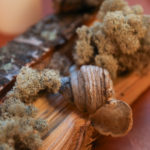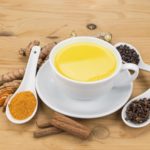Inflammation-Aging Link Confirmed

We have long known that the process of inflammation is vital to healing from infection and injury. The heat, tenderness, swelling, and redness surrounding a wound show us that the body is marshaling its defensive response. However, inflammation can escape its local, temporary boundaries and persist throughout the body. Such chronic inflammation can be quite dangerous, leading to disease and even shortening our lives.
Whole-body, chronic, inappropriate inflammation can result from habitually eating processed foods, not getting sufficient exercise, experiencing ongoing stress, and being exposed to toxins – all of which are common in the modern world. Scientists have suspected that purposeless, persistent inflammation accelerates aging, leading to faster onset of such age-related diseases as Alzheimer’s disease, cardiovascular disease, and certain cancers, and ultimately to shortened lifespan. In 2014, a team from Newcastle University published a paper in the journal Nature Communications that described in detail how inflammation causes cells to undergo more rapid senescence – the deterioration of function leading to cell death, and, eventually, death of the organism.
Before we go further, I would emphasize that while controlling inflammation through healthy lifestyle habits, especially an anti-inflammatory diet is essential for overall well-being, it cannot stop or reverse aging. There’s no way to do either, despite the claims of anti-aging websites and healthcare practitioners.
The researchers demonstrated this by studying mice in which a gene that normally modulates the inflammatory response was “switched off” so that the mice were prevented from creating inflammation-calming enzymes. The genetically altered mice were compared to normal mice that retained their ability to produce the enzymes.
The result? The researchers reported that the inflammation-prone mice underwent all aspects of normal aging twice as quickly as their non-genetically altered counterparts. The lack of key enzymes made them old before their time.
The researchers also found that giving the genetically altered mice ibuprofen helped restore their ability to age at a normal rate. This simple, cheap anti-inflammatory drug was able to “reverse the progression of cell senescence and restore the ability of tissues to regenerate,” said one of the researchers. (As proof of concept, ibuprofen was an effective research tool for animal studies, but I don’t recommend that humans take it except for specific medical reasons, as it can be taxing – and ultimately toxic – to the liver and cause serious internal bleeding. It can also contribute to the development of high blood pressure.)
Since that 2014 paper, many other studies have confirmed the link between chronic inflammation and aging. The connection is strong enough that some have started using the term “inflame-aging” to refer to the process of accelerated aging caused by chronic inflammation.
As human beings age, we – like those altered mice – begin to lose our ability to moderate the inflammatory response. That makes an excellent case for making lifestyle choices that reduce excessive or inappropriate inflammation.
I developed my Anti-Inflammatory Diet for this very purpose. The regimen excludes processed foods and emphasizes:
- Whole fruits and vegetables
- Asian mushrooms such as shiitake, enoki and maitake
- Omega-3 rich fish, and fish oil supplements
- Spices, especially turmeric and ginger
- Green tea
Moderate daily exercise – at least 30 minutes a day, at least five days per week – appears to confer anti-inflammatory benefits, as do stress-reduction techniques such as meditation and conscious breathing.
The cellular damage wrought by inflammation is likely just one of many metabolic factors that combine to create the changes we group under the label “aging.” Much more research must be done before we can claim to thoroughly understand the process. What we do know is that following an anti-inflammatory lifestyle appears to be one of the best ways to increase the likelihood of arriving at a relatively vigorous, healthy old age. Part of that proven strategy to maintain wellness, and a normal weight, is through the enjoyment of appetizing, natural, and healthy foods.
Watch this video for more information: How to Eat The Anti-Inflammatory Diet
Related Resources:
Want to learn more? Dr. Weil on Healthy Aging is the premier website for strategies to optimize healthy aging via an anti-inflammatory diet and lifestyle.
Originally Published July 2014. Updated November 2023 and March 2024.
Sources
Teissier T, Boulanger E, Cox LS. Interconnections between Inflammageing and Immunosenescence during Ageing. Cells. 2022 Jan 21;11(3):359. doi: 10.3390/cells11030359. PMID: 35159168; PMCID: PMC8834134. pubmed.ncbi.nlm.nih/35159168/
Jurk D, Wilson C, Passos JF, Oakley F, Correia-Melo C, Greaves L, Saretzki G, Fox C, Lawless C, Anderson R, Hewitt G, Pender SL, Fullard N, Nelson G, Mann J, van de Sluis B, Mann DA, von Zglinicki T. Chronic inflammation induces telomere dysfunction and accelerates ageing in mice. Nat Commun. 2014 Jun 24;2:4172. doi: 10.1038/ncomms5172. PMID: 24960204; PMCID: PMC4090717.












